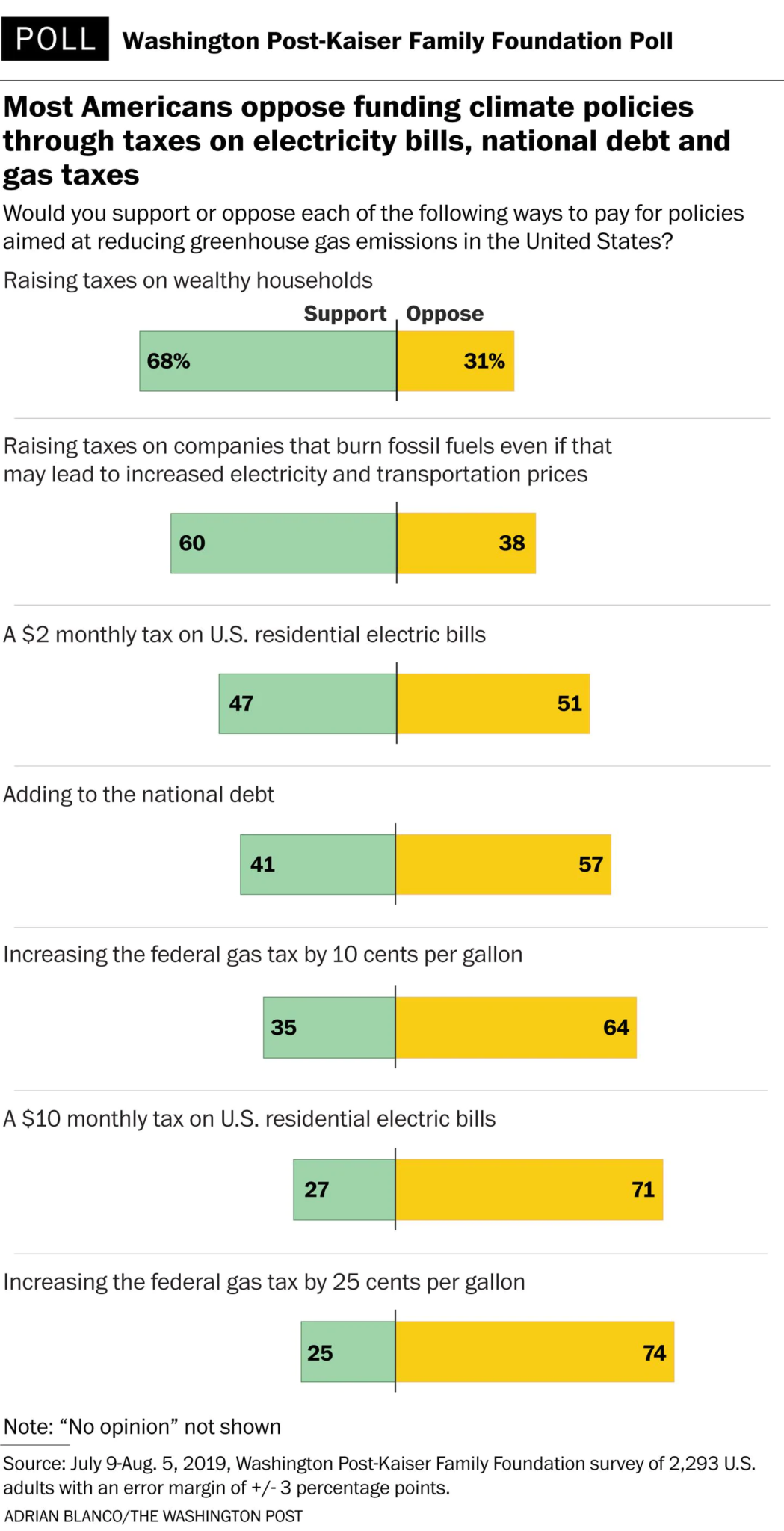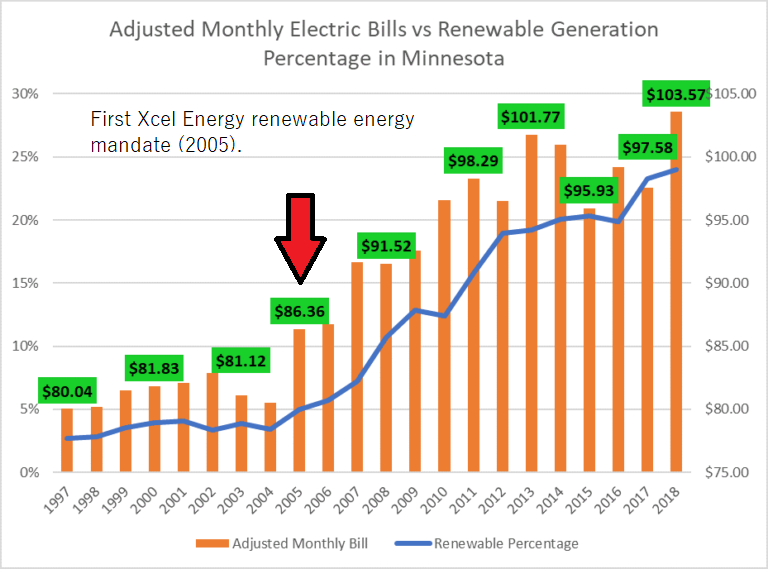Washington Post Poll Shows Most People Unwilling to Pay $2 Per Month Tax to Fight Climate Change
While the climate strike and Greta Thunberg may have the limelight this week, the unwavering truth of climate and energy policy remains: people are unwilling to pay the costs associated with reducing carbon dioxide emissions.
A recent poll from the Washington Post-Kaiser Family Foundation shows that support for reducing carbon dioxide emissions withers under the slightest bit of scrutiny. The poll shows people favor taxing the wealthy to pay for increasing electricity costs, which is pretty much par for the course on every issue, and raising taxes on energy, even if that leads to higher prices.

However, when people are asked to make a personal sacrifice, support simply evaporates. Indeed, 51 percent of U.S. residents oppose paying a $2 per month tax on their electric bills, and this number climbs to 71 percent opposed when this number increases to a $10 monthly tax.
It’s worth noting that electricity bills in Minnesota are already $20 per month higher, in inflation adjusted dollars, and this increase is almost entirely due to spending more than $15 billion on wind turbines and transmission lines, in addition to the costs associated with complying with Minnesota’s 1.5 percent solar mandate.

Our research shows the cost of the average electric bill will increase by about $31 more per month if utility companies shut down reliable, affordable coal plants in favor of more expensive and less reliable wind and solar. Furthermore, this additional cost does not account for the higher prices consumers will pay for goods and services as companies try to raise their prices to pay for higher overhead costs.
Once these costs are accounted for, the monthly cost of a 50 percent renewable energy mandate be about $100 per month.
The Washington Post didn’t ask respondents if they would be willing to pay an extra $50 per month tax on their electric bills, but I’m going to take a wild guess and suggest it would have even less support than a $10 tax.
Unfortunately, the proposals by Governor Walz and liberal members of the House would cost far more than $100 per month because a 100 percent carbon free standard will be much more difficult than a 50 percent renewable standard, especially if they continue to deny the important role nuclear and large hydro would need to play to ensure reliable, affordable electricity.